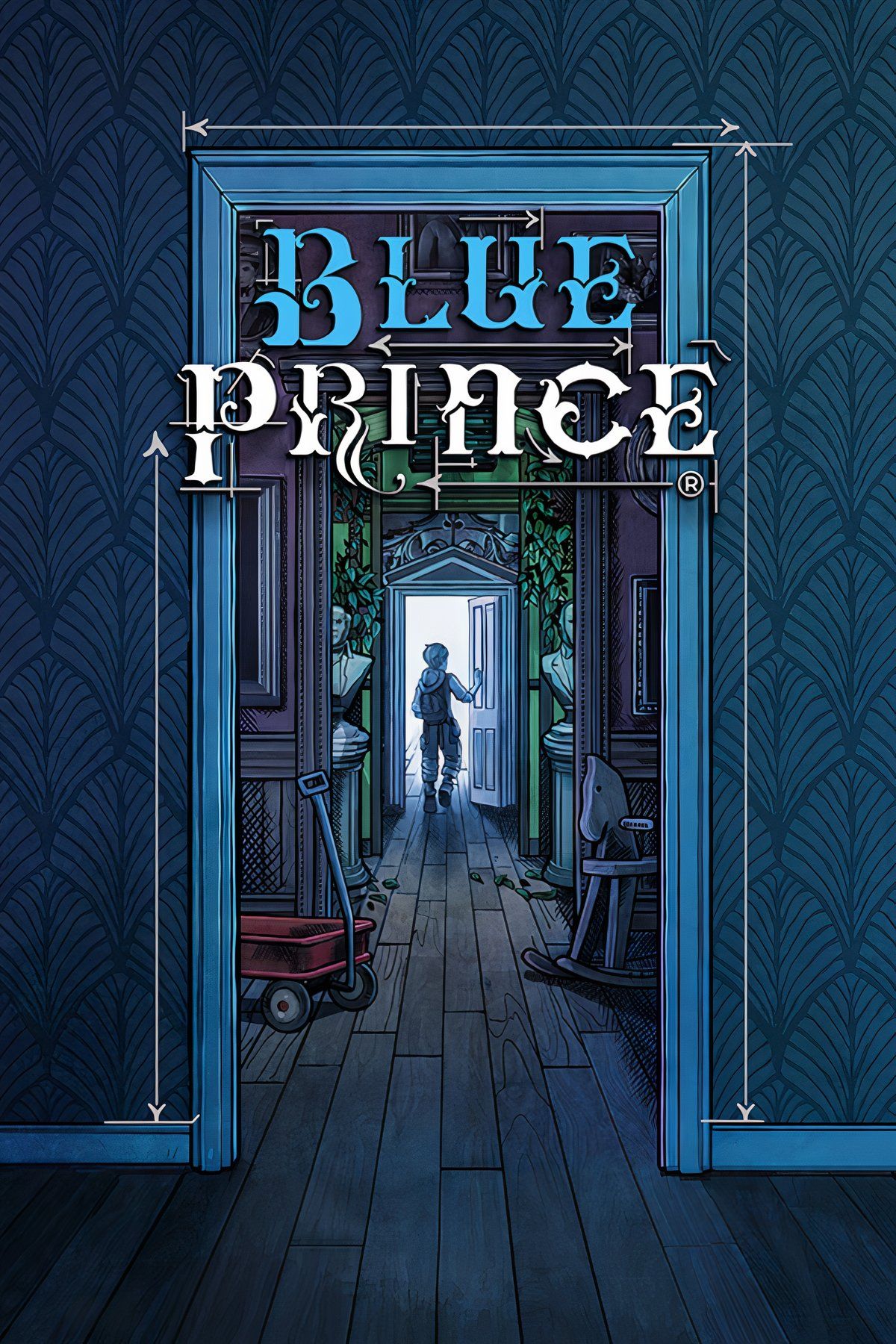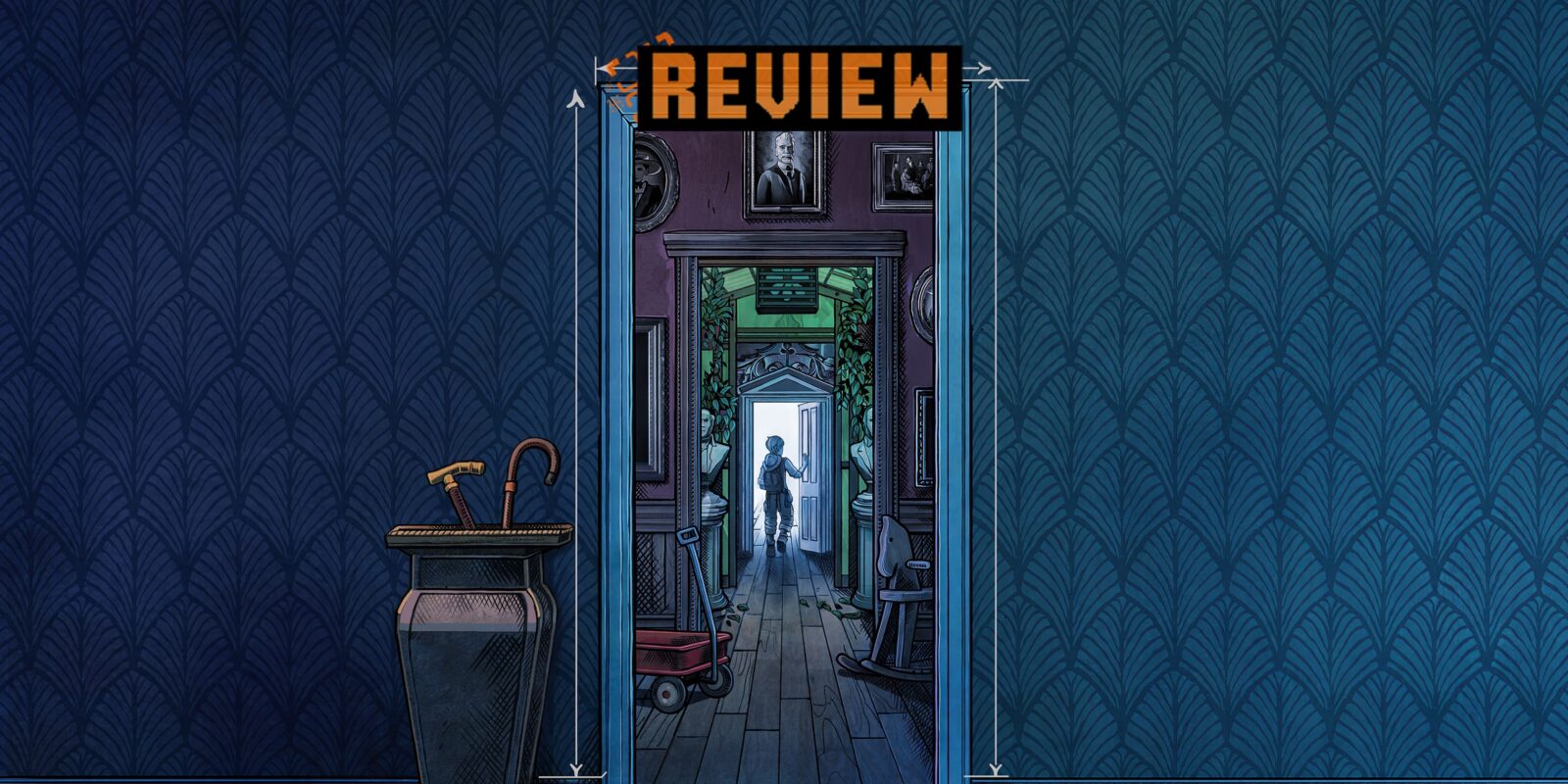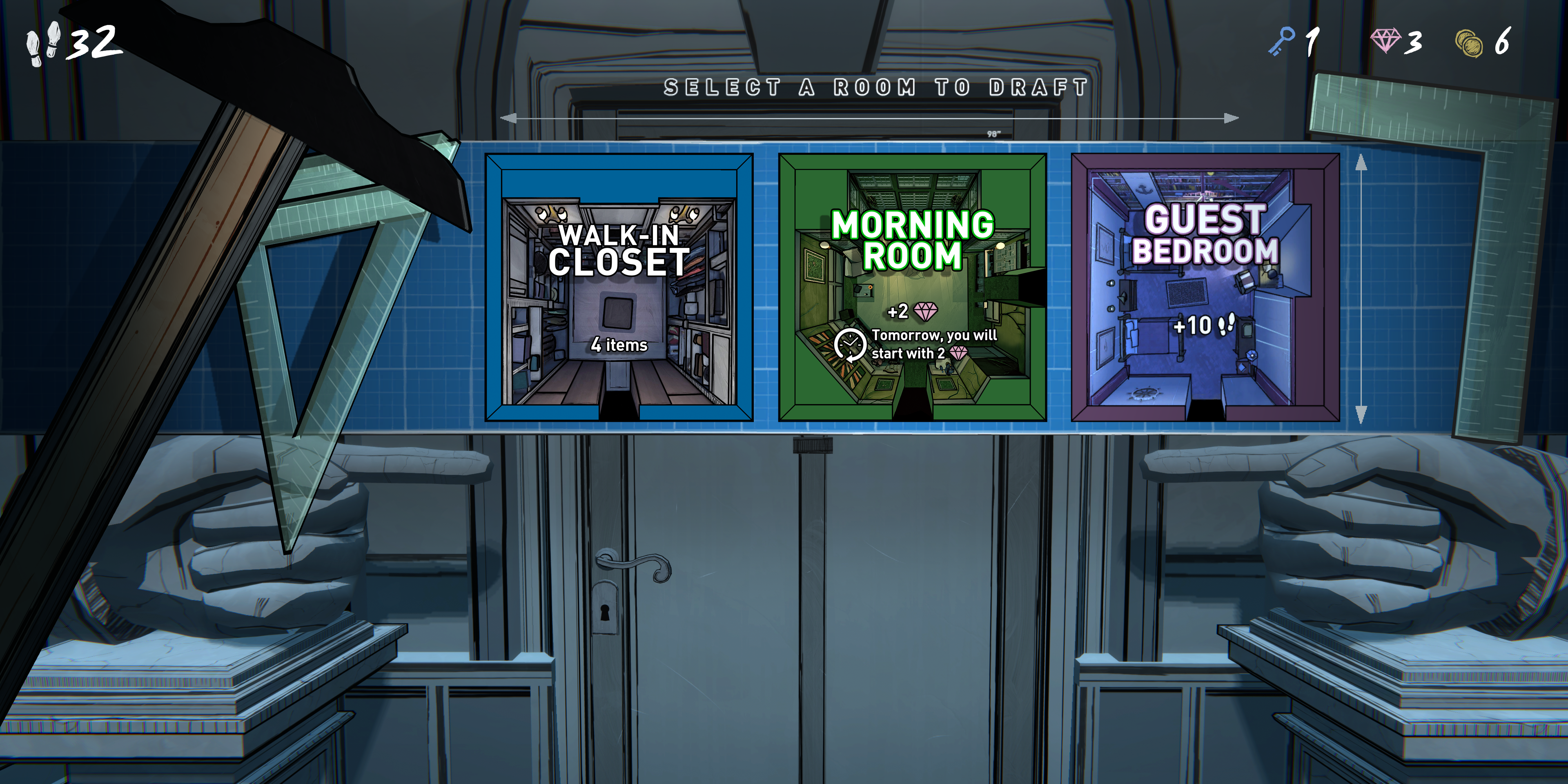Blue Prince is a game that you can’t really discuss without spoilers, because everything in it is so much better experienced first-hand than heard about through someone else. Unfortunately, describing it to you, dear reader, is my job, and so I’m stuck between a rock and a hard place. Taking out the specifics of my experience leaves me with just the bare bones, so it’s these bones we’ll start with.
In Blue Prince, you play as the heir to the Mt. Holly estate. To secure your inheritance, you must find the estate’s mysterious 46th room. This is harder than it sounds. Mt. Holly’s layout changes every day, depending on your luck and your choices. You play in first-person. It’s a roguelike architectural puzzler, a concept so surprising that the fact that someone came up with it at all blows my mind. It’s quite beautiful – many of its rooms are gorgeously lit, and its cel-shaded art style makes it a pleasure to look at.
Layers On Layers, Rooms On Rooms
With every door you open across the estate, you have to draft one of three rooms, which are drawn from your pool of available plans. These rooms will have different numbers of exits, cutting you off from certain avenues and forcing you to find workarounds. They may have resources you can use to extend your run – keys, to unlock locks and chests, coins to buy items, gems to draft rarer rooms, items to make your run a little easier. They might have self-contained logical puzzles. They might give you new information about the game’s world and lore, about the utility of other rooms, reveal the existence of secret codes, or secrets you need to figure out all on your own.
Most of the things you’ll discover only last for the day, making each run an opportunity to chase down a new lead. You can only move a limited amount per day, so you have to be tactical about what you choose to do with your time. I have to be transparent: I haven’t rolled credits yet, despite having tried very hard to do so over more than 20 hours. This is not the kind of game you can brute force. It requires colluding and collaboration with people smarter or more patient than you. It requires a pen and paper. It takes time.
It reminds me very much of Lorelei and the Laser Eyes in the amount of attention to detail it requires and the complexity of its interconnected puzzles. When I reviewed Lorelei, I played it with a pad of paper that ended up covered in nearly incomprehensible writing. My experience with Blue Prince has been very similar. I used a notepad to take notes, and it’s now covered in what other people could really only interpret as the scribblings of a madman. There are dates, codes, grids, and lots of question marks. I’ve flipped through the pad so vigorously and so many times that the leaves have started to fall out. My messages about the game to our guide writer almost always contain the words ‘I’m crashing out’.
Blue Prince can be very frustrating to play, in the same way that Animal Well and Lorelei are. You feel like an idiot a lot of the time. You know you’re missing something, but you don’t know what. You might not know what leads you should focus on, whether something you’re trying to figure out will help you get to room 46 or if it’s another can of worms that will divert you from your main goal. When you figure something out, you feel like a genius. That feeling of things clicking into place is incredible. That feeling can be elusive, depending on what you’re able to put together, but it’s amazing.
Bad Luck, Bad Run
A lot of what makes a run productive is reliant on RNG, getting the items you need, setting yourself up for success on previous runs, drafting the right rooms at the right time, getting the perfect synergy of rooms that allows you to find the solution to a mystery that’s been eluding you for ten in-game days. It can feel almost unfair, but that’s largely because I was playing with a deadline.
With infinite time, I’d be happy to work around this unfairness. I’m fairly sure that even after finishing this review, I’ll be jumping back in and trying to solve everything it has to offer. There’s so much, and I can’t describe any of it to you, because, again, it’s better experienced first-hand. Every time I think I’ve gotten close to getting to that last room, I’ve found a whole new layer so confusing and complicated that my understanding of the scope of the game is made anew.
The point of this experience is more than just the puzzles or the goal. Underpinning Blue Prince is a conspiracy that involves politics, blackmail, and the disappearance of a children’s book author. To pick apart – or put together, maybe – what’s happened to Mt. Holly’s inhabitants over the years, you have to discover new things. There is no way to do this but through repeated exploration.
I can’t comment on whether the narrative payoff is worth it, because I haven’t hit credits, but the method through which the story is told is satisfying and comprehensive. There’s a lot of pleasure to be derived from picking up a letter in a room you’ve just drafted for the first time and putting two and two together, pinning another bit of red thread to your mental conspiracy board.
Blue Prince defies genre, and it defies the gamer instinct to min-max. It is contemplative, a journey that can’t be rushed, though you might be tempted to try. It will delight you, thrill you, and probably make you run crying to the internet for answers you can’t seem to tease out on your own. I’ve never played anything like it, but I won’t be surprised if we see more takes on the roguelike puzzler in the future because of it.

Reviewed on PC.
Puzzle
Adventure
Exploration
Strategy
- Released
-
2025
- ESRB
-
Rating Pending
- Developer(s)
-
Dogubomb
- Publisher(s)
-
Raw Fury
- Innovative, genre-defying concept
- Puzzles can be difficult, but still fair
- Incredibly satisfying when you?re not wondering if you?re the world?s biggest dummy
- Some puzzles rely too much on luck














Leave a Reply